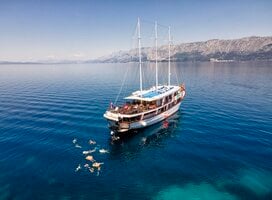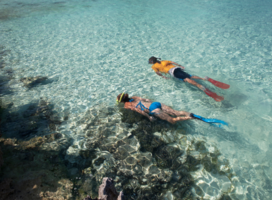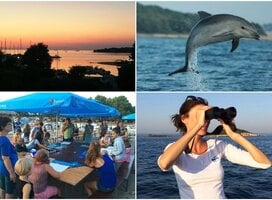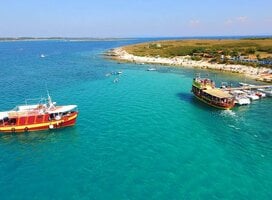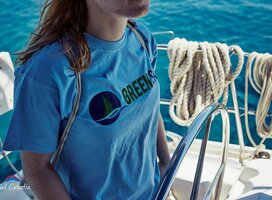Gap Year in Croatia
Croatia was once a traveler's secret, but that's quickly changing. With fabulous medieval cities, breathtaking natural scenery and delicious food, this beautiful country is making its way onto many people's "must see" lists. Many who visit say they wish they had more time, so count yourself smart for choosing to spend all or part of your gap year exploring Croatia.
At Go Overseas, we strive to provide the most comprehensive program and gap year listings available. At this time, we are only able to find a few gap year opportunities in Croatia, listed below. You can read this full guide to spending your gap year in Croatia, or use the Search page to explore other gap year opportunities.
A gap year in Croatia can be tailored to suit every traveler’s interests. Whether it’s teaching English, spending time with children as an au pair, or backpacking through this beautiful country, your time in Croatia will be unforgettable.
Teach English
Finding work as an English teaching in Croatia isn’t as common as other countries around the world, but it’s not impossible. When applying to individual institutions, don’t be discouraged if you don’t hear back right away. Response times can be slow. Also, be sure to search various avenues to find jobs: contact your TEFL institution’s advisor, peruse the TEFL job sites and get in touch with individual schools you find.
As with most countries, it’s easier to find English teaching positions in the larger cities like Split, Zagreb, and Rijeka. A TEFL certificate is often needed to work at private institutions while public schools require employees to have a Master’s in Education. Schools often hire teachers for fall in July, August, and September but sending your resume year round doesn’t hurt.
Au Pair
If working with children brings you joy, then consider spending your gap year as an au pair. Living as a member of a Croatian family allows you to pick up the language and situate yourself in the day-to-day life of the country.
It’s a great way to immerse yourself in Croatian culture. Plus you’ll have the support of your new family to help you navigate the ins and outs of your new home. Both live in and live out positions are possibilities depending on your preference.
Backpacking
Dubrovnik, Split, and Zagreb are among Croatia’s most visited cities. While their visibility among tourists may be growing, the beauty is certainly not diminishing. Medieval walls surround Dubrovnik, you can learn to sail in the Split harbor and enjoy the spectacular Christmas markets in Zagreb.
Exploring beyond these major centers, you’ll find award-winning red wine in the Peljesac Peninsula. The Elaphite Islands offer peace of mind with spectacular hikes and gorgeous beaches. Not to be missed is Zadar with its sea organ and 2,000-year-old Roman forum.
Visas
Visa requirements for Croatia differ based on citizenship, so be sure to confirm with your local embassy before traveling.
US, Canadian, British, and Australian citizens are not required to have a tourist visa if they are planning to stay for less than 90 days. You do need a valid passport that is valid for up to three months after your planned departure date. Travelers are required to register with the local police station within 24 hours of arrival. Generally, if you are staying in a hotel or hostel they’ll register for you.
Individuals interested in staying longer than 90 days have a few hoops to jump through. Temporary stay permits are often required to be obtained from a Croatian Consulate or Embassy in your home country. Once in Croatia, a residency permit can be obtained by providing documents such a birth certificate, proof of health insurance, proof of financial means, and a criminal background check, among other things. All pertinent documents must also be translated into Croatian and have an “Apostille” stamp. Those interested in working will need to apply for an additional work permit.
Be sure to give yourself plenty of time to research the process, gather the necessary documents, and apply in advance.



